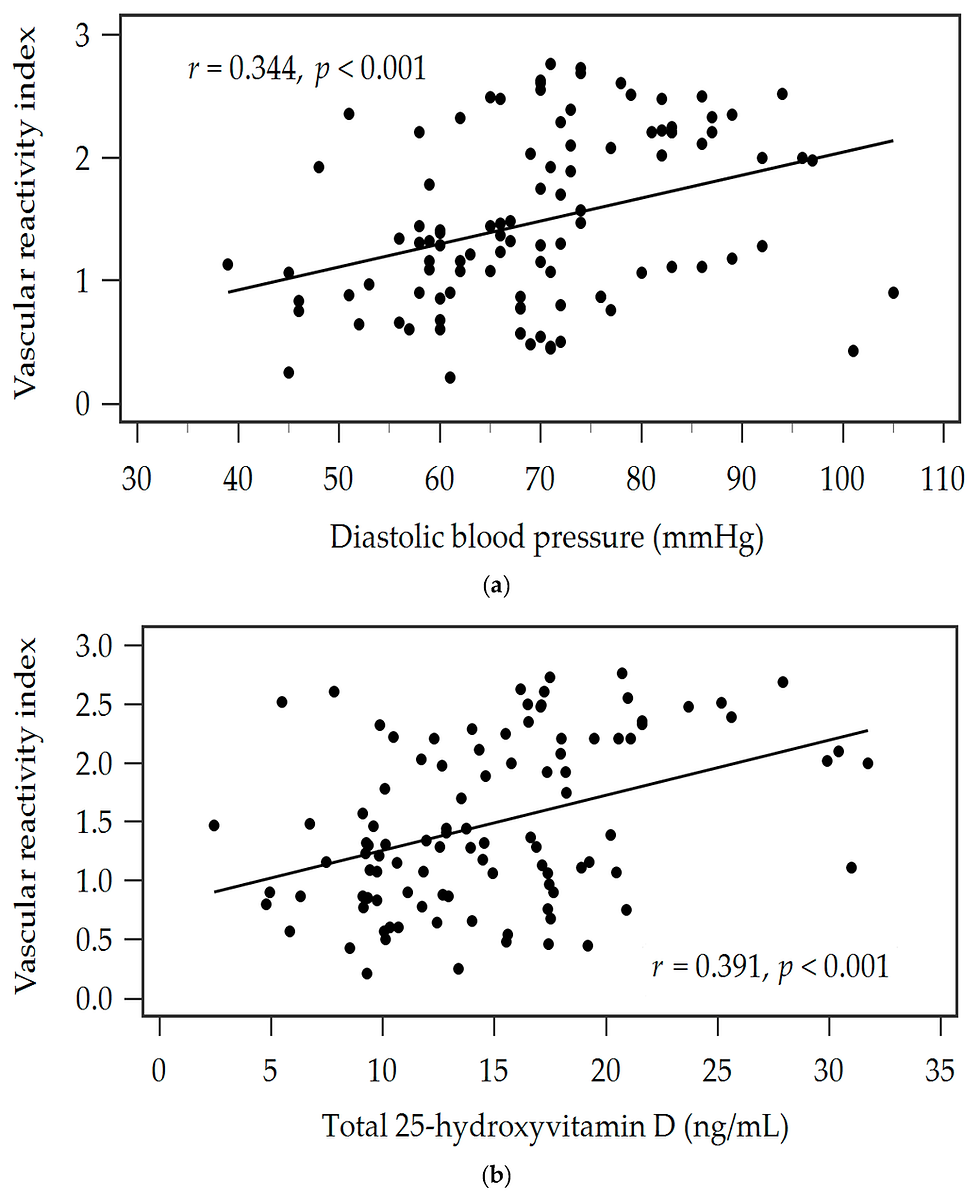The effects of 100% wild blueberry (Vaccinium angustifolium)
- heartlung
- Jan 16, 2023
- 2 min read
juice consumption on cardiometablic biomarkers: a randomized, placebo-controlled, crossover trial in adults with increased risk for type 2 diabetes.

BMC Nutr. 2017 May 25;3:45. The effects of 100% wild blueberry (Vaccinium angustifolium) juice consumption on cardiometablic biomarkers: a randomized, placebo-controlled, crossover trial in adults with increased risk for type 2 diabetes. Stote KS1, Sweeney MI2, Kean T2, Baer DJ3, Novotny JA3, Shakerley NL4, Chandrasekaran A4, Carrico PM5, Melendez JA4, Gottschall-Pass KT2. Author information 1 Division of Science, Mathematics and Technology, State University of New York, Empire State College, 113 West Avenue, Saratoga Springs, NY 12866 USA. 2 Departments of Biology (MIS), Applied Human Sciences (KTG) and School of Nursing (TK) University of Prince Edward Island, Charlottetown, Prince Edward Island Canada. 3 Beltsville Human Nutrition Research Center, US Department of Agriculture, Agriculture Research Service, Beltsville, USA. 4 Nanobioscience Constellation, State University of New York Polytechnic Institute, Albany, NY USA. 5 Department of Biology, State University of New York, University at Albany, Albany, USA. Abstract BACKGROUND: Wild blueberries have a high content of polyphenols, but there is limited data evaluating their health benefits in adults at risk for type 2 diabetes. The objective of the study was to investigate whether consumption of 100% wild blueberry juice improves cardiometabolic biomarkers associated with type 2 diabetes risk. METHODS: A single-blind, randomized, placebo-controlled, crossover design trial was conducted in which adults (women, n = 19, ages 39-64 y) at risk for type 2 diabetes consumed 240 mL of wild blueberry juice or a placebo beverage as part of their free-living diet for 7 days. Blood was collected to determine various biomarkers such as fasting plasma glucose, fasting serum insulin, surrogate markers of insulin sensitivity, triglycerides, inflammation (interleukin-6, interleukin-10, high-sensitivity C-reactive protein, tumor necrosis factor-alpha, serum amyloid A), adhesion molecules (soluble intercellular adhesion molecule-1, soluble vascular adhesion molecule-1), oxidative stress (LDL-oxidation, total 8-isoprostanes), and nitric oxide. Endothelial function and blood pressure were also assessed. RESULTS: Wild blueberry juice consumption for 7 days produced no significant changes in glucose, insulin, insulin sensitivity, triglycerides, inflammatory markers, adhesion molecules, oxidative stress, endothelial function or blood pressure. However, wild blueberry juice consumption showed a trend for lowering systolic blood pressure: 120.8 ± 2.2 mmHg in the placebo group vs 116.0 ± 2.2 mmHg in the blueberry juice group (P = 0.088). Serum concentrations of nitrates and nitrites, an index of nitric oxide production, increased from 2.9 ± 0.4 μM after placebo drink to 4.1 ± 0.4 μM after drinking wild blueberry juice (P = 0.039). CONCLUSIONS: Short-term consumption of wild blueberry juice may promote cardioprotective effects, by improving systolic blood pressure, possibly through nitric oxide production, in adults at risk for type 2 diabetes. This outcome warrants longer-term human studies of blueberries, including defined amounts of either the whole fruit or juice, to clarify whether polyphenol-rich foods can be efficacious for improving cardiometabolic biomarkers in adults at risk for type 2 diabetes. TRIAL REGISTRATION: NCT02139878, clinicaltrials.gov; date of registration: May 4, 2014. © The Author(s). 2017. KEYWORDS: 100% wild blueberry juice; Blood pressure; Endothelial function; Nitric oxide; Risk factors for type 2 diabetes Related Publications Blueberries improve endothelial function, but not blood pressure, in adults with metabolic syndrome: a randomized, double-blind, placebo-controlled clinical trial. Stull AJ1,2, Cash KC3, Champagne CM4, Gupta AK5, Boston R6, Beyl RA7, Johnson WD8,9, Cefalu WT10,11.



![Lipoprotein(a) levels predict endothelial dysfunction in maintenance hemodialysis patients: evidence from [VENDYS] vascular reactivity index assessment](https://static.wixstatic.com/media/dac531_5285607cc591409a9d83746f042af7c6~mv2.png/v1/fill/w_980,h_980,al_c,q_90,usm_0.66_1.00_0.01,enc_avif,quality_auto/dac531_5285607cc591409a9d83746f042af7c6~mv2.png)
Comments